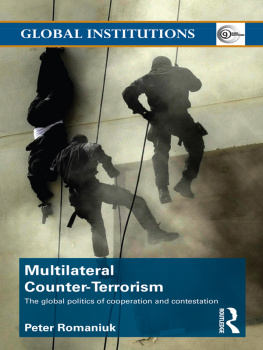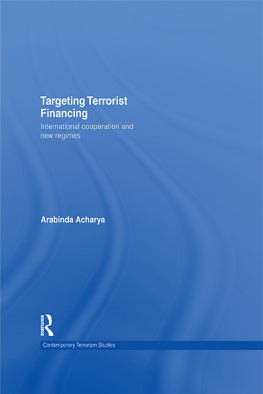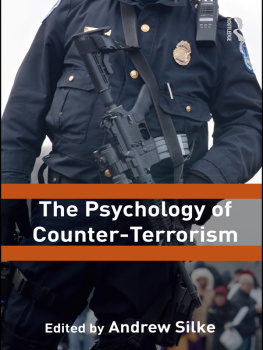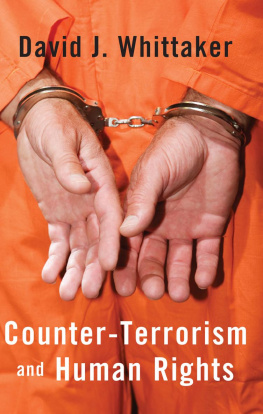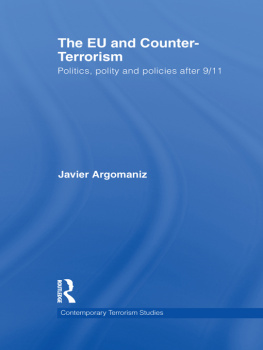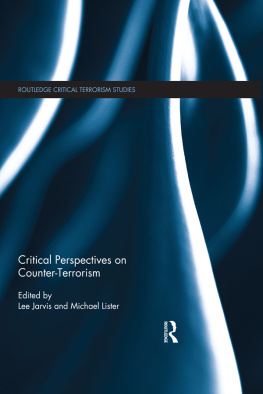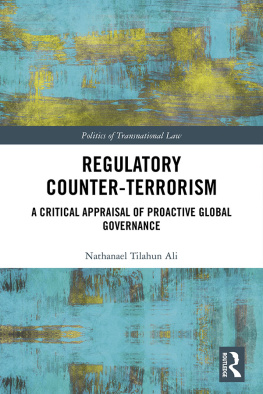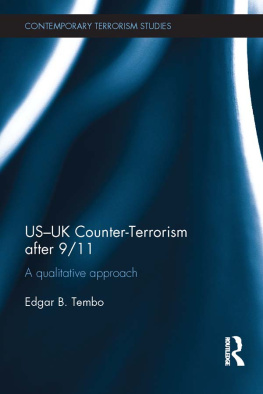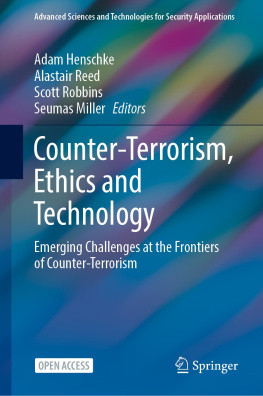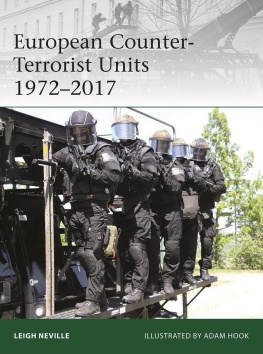Multilateral Counter-Terrorism
Contemporary terrorism is a global phenomenon requiring a globalized response. In this book Peter Romaniuk aims to assess to what extent states seek multilateral responses to the threats they face from terrorists. Providing a concise history and a clear discussion of current patterns of counter-terrorism cooperation, this book:
analyzes a wide spectrum of institutions from the United Nations and its various bodies to military, intelligence and law enforcement agencies;
explains the full range of cooperative counter-terrorism activities and the patterns across them, from the use of intelligence and military force to criminal law measures, financial controls and diplomacy;
examines under what conditions states cooperate to suppress terrorism;
evaluates how existing international institutions have been affected by the US-led global war on terror, launched after the 9/11 terrorist attacks.
The book argues that whilst there are several notable examples of successful counter-terrorism cooperation, past and present, the broader trend can only be understood if we accept that across the domains of counter-terrorism policy, cooperation often resembles a competition for influence over outcomes.
Multilateral Counter-Terrorism is an essential resource for all students and scholars of international politics, criminology, and terrorism studies.
Peter Romaniuk is Assistant Professor of Political Science, John Jay College of Criminal Justice, City University of New York, where he is Research Fellow at the Center on Terrorism.
Routledge Global Institutions
Edited by Thomas G. Weiss
The CUNY Graduate Center, New York, USA
and Rorden Wilkinson
University of Manchester, UK
About the Series
The Global Institutions Series is designed to provide readers with comprehensive, accessible, and informative guides to the history, structure, and activities of key international organizations as well as books that deal with topics of key importance in contemporary global governance. Every volume stands on its own as a thorough and insightful treatment of a particular topic, but the series as a whole contributes to a coherent and complementary portrait of the phenomenon of global institutions at the dawn of the millennium.
Books are written by recognized experts, conform to a similar structure, and cover a range of themes and debates common to the series. These areas of shared concern include the general purpose and rationale for organizations, developments over time, membership, structure, decision-making procedures, and key functions. Moreover, current debates are placed in historical perspective alongside informed analysis and critique. Each book also contains an annotated bibliography and guide to electronic information as well as any annexes appropriate to the subject matter at hand.
The volumes currently published include:
42 Multilateral Counter-Terrorism (2010)
The global politics of cooperation and contestation
by Peter Romaniuk (John Jay College of Criminal Justice, CUNY)
41 Governing Climate Change (2010)
by Harriet Bulkeley (Durham University) and Peter Newell (University of East Anglia)
40 The UN Secretary-General and Secretariat (2010)
Second edition
by Leon Gordenker (Princeton University)
39 Preventive Human Rights Strategies (2010)
by Bertrand G. Ramcharan (Geneva Graduate Institute of International and Development Studies)
38 African Economic Institutions (2010)
by Kwame Akonor (Seton Hall University)
37 Global Institutions and the HIV/AIDS Epidemic (2010)
Responding to an international crisis
by Franklyn Lisk (University of Warwick)
36 Regional Security (2010)
The capacity of international organizations
by Rodrigo Tavares (United Nations University)
35 The Organisation for Economic Co-operation and Development (2009)
by Richard Woodward (University of Hull)
34 Transnational Organized Crime (2009)
by Frank Madsen (University of Cambridge)
33 The United Nations and Human Rights (2009)
A guide for a new era, second edition
by Julie A. Mertus (American University)
32 The International Organization for Standardization (ISO) (2009)
Global governance through voluntary consensus
by Craig N. Murphy (Wellesley College) and JoAnne Yates (Massachusetts Institute of Technology)
31 Shaping the Humanitarian World (2009)
by Peter Walker (Tufts University) and Daniel G. Maxwell (Tufts University)
30 Global Food and Agricultural Institutions (2009)
by John Shaw
29 Institutions of the Global South (2009)
by Jacqueline Anne Braveboy-Wagner (City College of New York, CUNY)
28 International Judicial Institutions (2009)
The architecture of international justice at home and abroad
by Richard J. Goldstone (Retired Justice of the Constitutional Court of South Africa) and Adam M. Smith (Harvard University)
27 The International Olympic Committee and the Olympic System (2009)
The governance of world sport
by Jean-Loup Chappelet (IDHEAP Swiss Graduate School of Public Administration) and Brenda Kbler-Mabbott
26 The World Health Organization (2009)
by Kelley Lee (London School of Hygiene and Tropical Medicine)
25 Internet Governance (2009)
The new frontier of global institutions
by John Mathiason (Syracuse University)
24 Institutions of the Asia-Pacific (2009)
ASEAN, APEC, and beyond
by Mark Beeson (University of Birmingham)
23 UNHCR (2008)
The politics and practice of refugee protection into the twenty-first century
by Gil Loescher (University of Oxford), Alexander Betts (University of Oxford), and James Milner (University of Toronto)
22 Contemporary Human Rights Ideas (2008)
by Bertrand G. Ramcharan (Geneva Graduate Institute of International and Development Studies)
21 The World Bank (2008)
From reconstruction to development to equity
by Katherine Marshall (Georgetown University)
20 The European Union (2008)
by Clive Archer (Manchester Metropolitan University)
19 The African Union (2008)
Challenges of globalization, security, and governance
by Samuel M. Makinda (Murdoch University) and Wafula Okumu (McMaster University)
18 Commonwealth (2008)
Inter- and non-state contributions to global governance
by Timothy M. Shaw (Royal Roads University)

